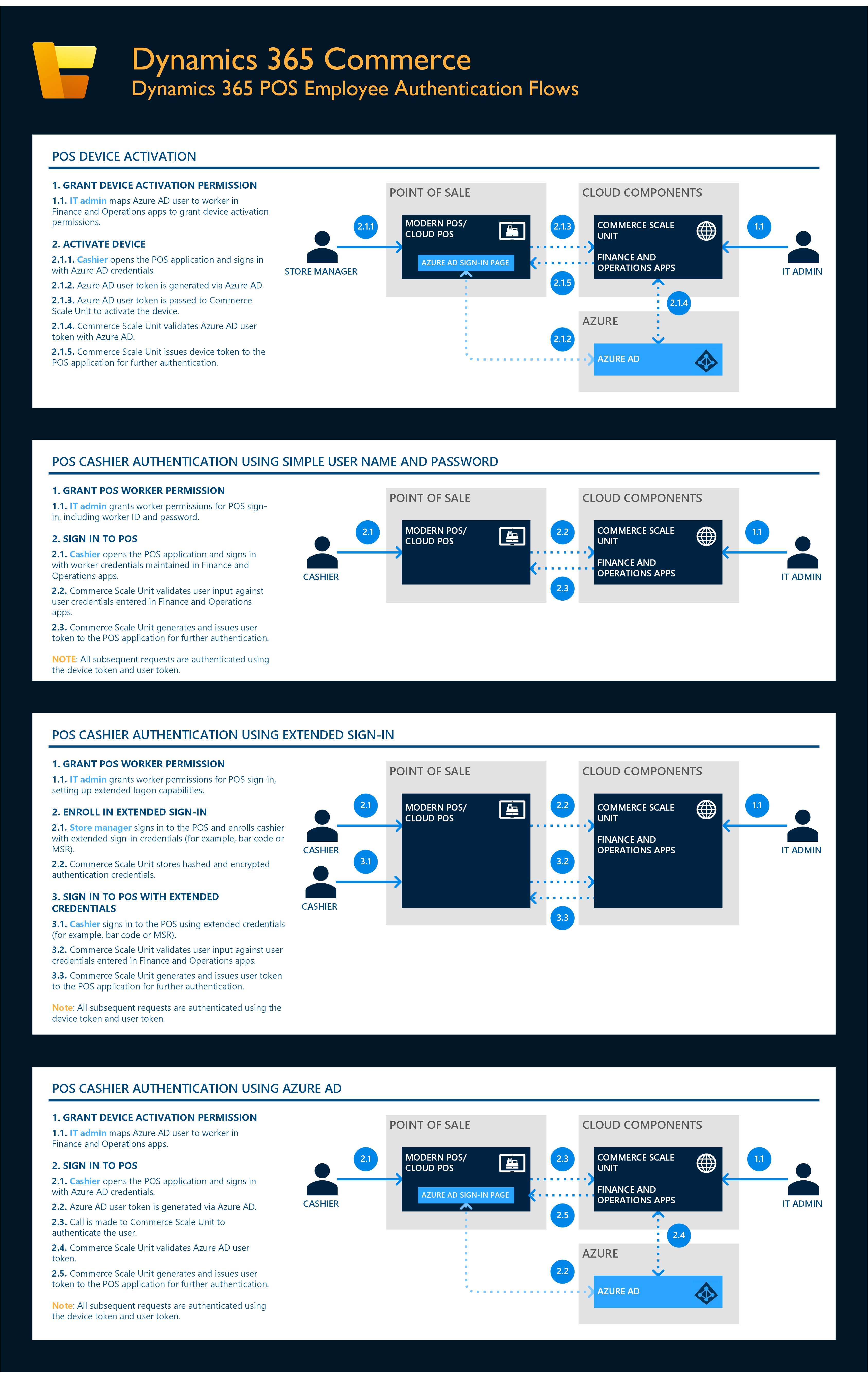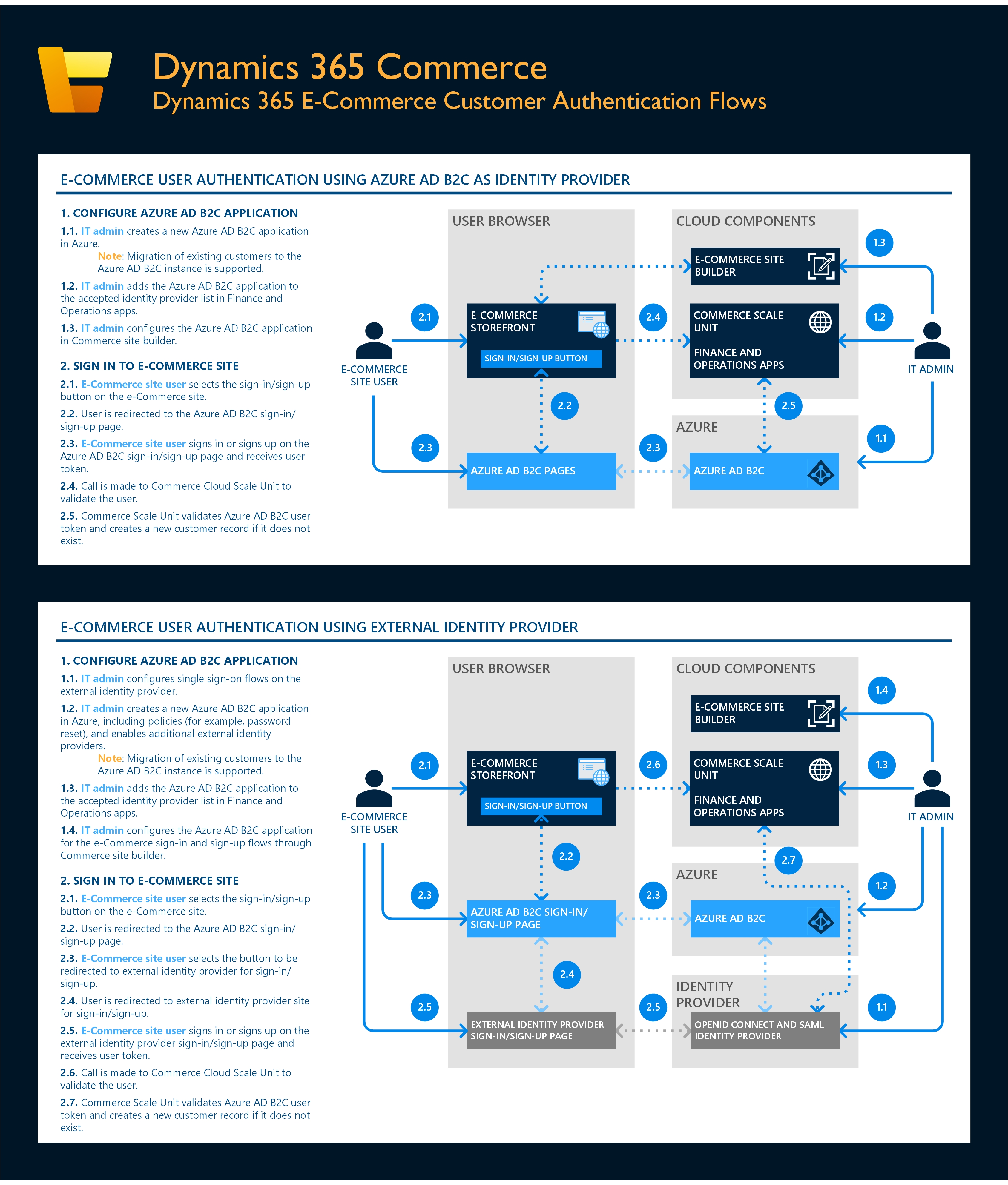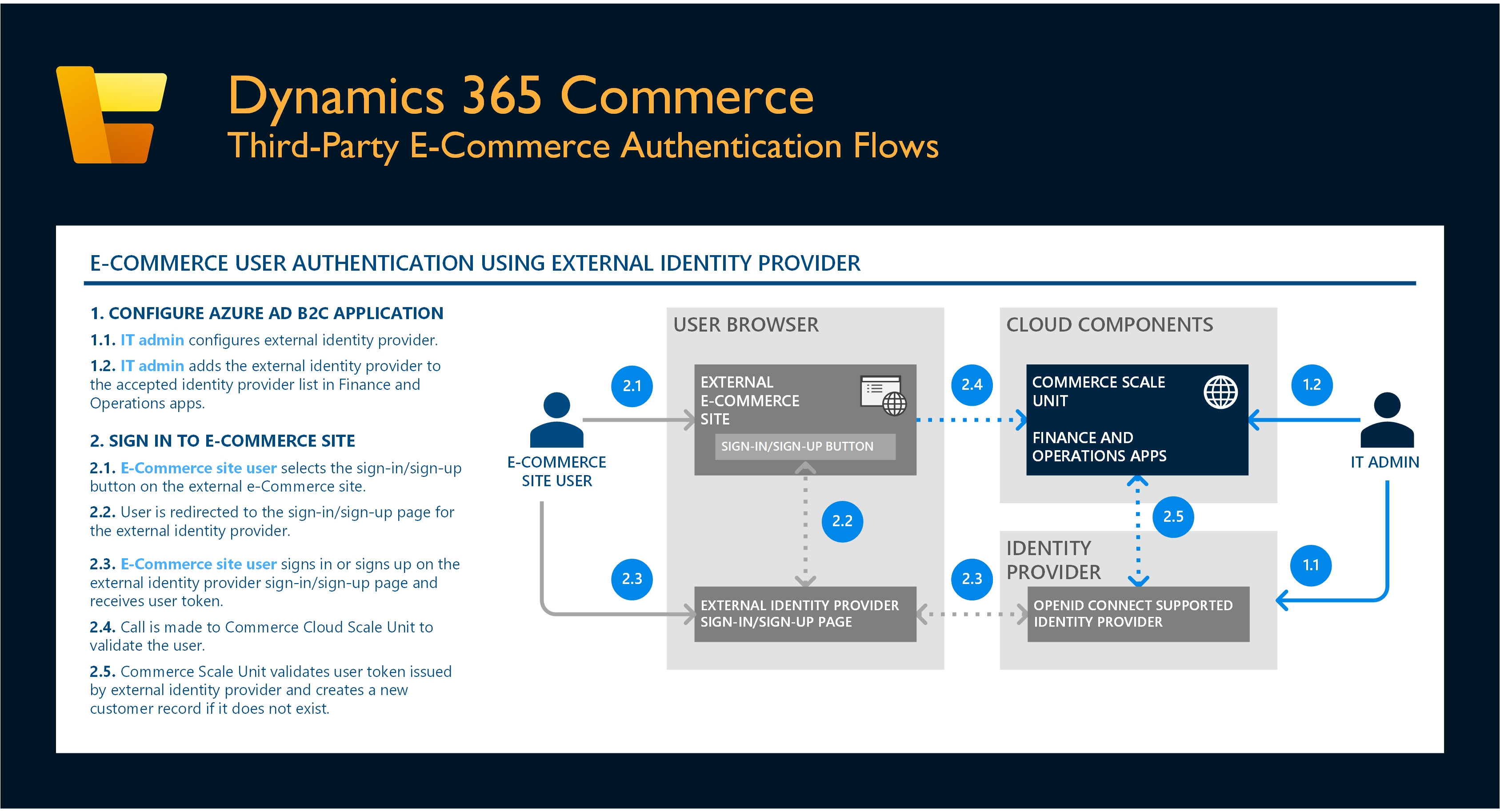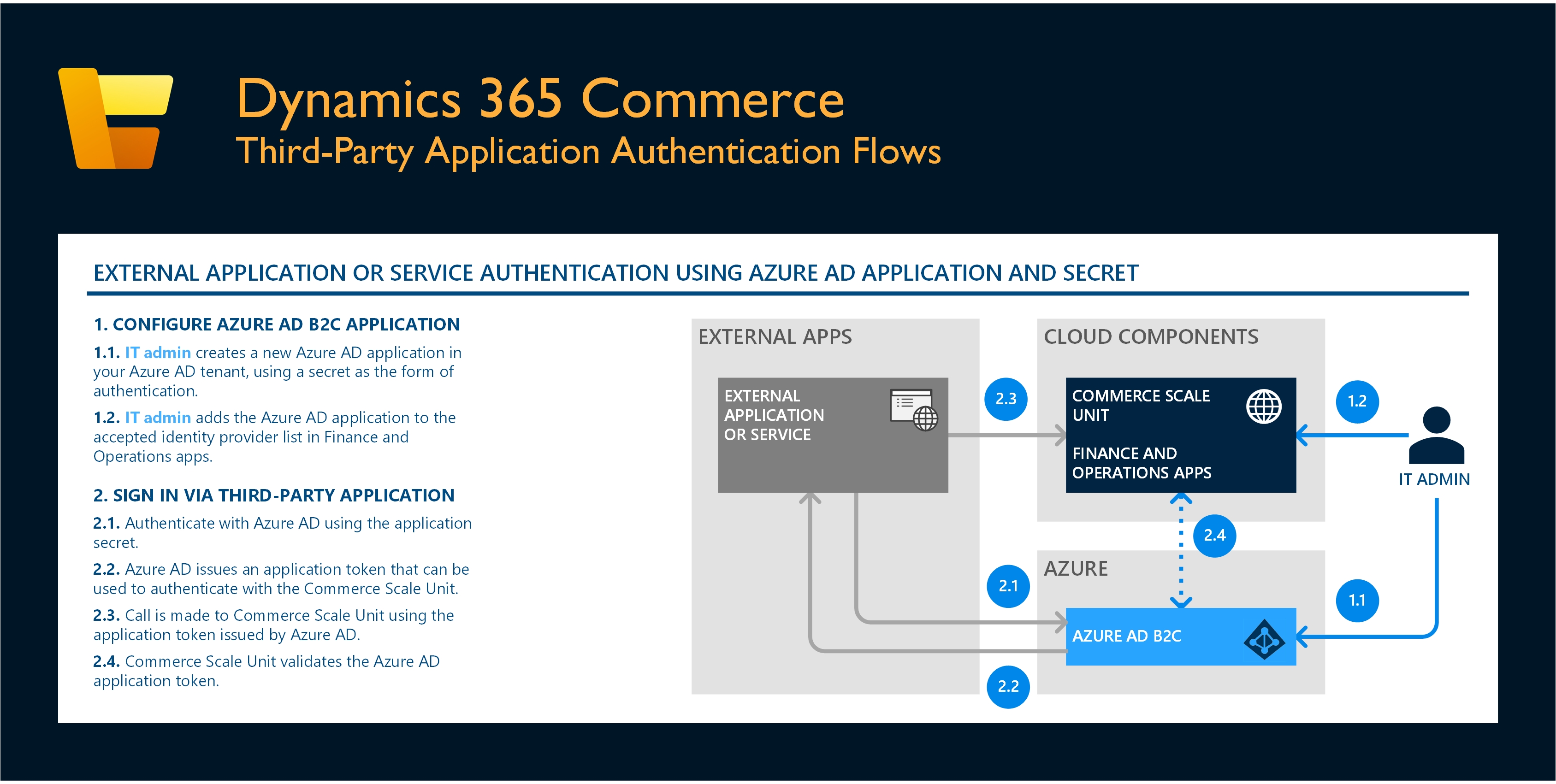Dynamics 365 Commerce authentication flows
This article provides an overview of the various authentication flows in Microsoft Dynamics 365 Commerce. Although the Dynamics 365 Commerce solution currently supports several authentication scenarios and flows, the core authentication infrastructure of the Commerce Scale Unit (also known as the headless commerce engine) is fully based on OpenID Connect.
Authentication methods
Access to each of the application programming interfaces (APIs) on the Commerce Scale Unit is natively restricted by one or more of the following roles:
- Employee – Access to APIs associated with this role requires point of sale (POS) device activation (a device token) and an authenticated employee.
- Customer – Access to APIs associated with this role requires an authenticated customer. E-Commerce sites generally use these APIs for operations such as retrieving order history and changing customer details.
- Application – Access to APIs associated with this role requires application-level authentication, such as Microsoft Entra service-to-service authentication.
- Anonymous – APIs associated with this role are primarily used by e-Commerce sites without user authentication.
- Customized APIs – Access to APIs associated with this role can be restricted using any of the methods described above such as POS device activation, customer authentication, and anonymous authentication.
For the full list of Commerce Scale Unit APIs and their access restrictions, see Commerce Scale Unit customer and consumer APIs.
Supported authentication methods
The following table describes the set of supported authentication methods for APIs that require either POS device activation that generates a device token or user authentication that generates a user token.
| API category | Scenario | Supported authentication method | Required setup | Additional details |
|---|---|---|---|---|
| Employee | Dynamics 365 POS authentication flows* | Simple cashier user name and password | In Dynamics 365 Commerce headquarters, configure a user name and password for a worker. | Create a worker |
| Employee | Dynamics 365 POS authentication flows* | Microsoft Entra credentials | In Commerce headquarters, configure a worker that is mapped to Microsoft Entra credentials. | Enable Microsoft Entra authentication for POS sign-in |
| Employee | Dynamics 365 POS authentication flows* | Extended sign-in credentials (for example, by using a bar code or a magnetic stripe reader [MSR]) | In Commerce headquarters, configure a worker for extended sign-in. | Set up extended sign-in functionality for Store Commerce app and Store Commerce for web |
| Customer | Dynamics 365 Commerce authentication flows | Site user authentication by using Microsoft Entra ID B2C with implicit scope flow |
|
Set up a B2C tenant in Commerce |
| Customer | Dynamics 365 Commerce authentication flows | Site user authentication by using an external identity provider that supports OpenID Connect with implicit scope flow |
|
Set up a B2C tenant in Commerce |
| Customer | Third-party e-Commerce authentication flows | Site user authentication by using an external identity provider that supports OpenID Connect with implicit scope flow | In Commerce headquarters, add the external identity provider to the accepted list of identity providers. | Configure authentication providers |
| Application | Third-party app or service authentication flows | Microsoft Entra service-to-service authentication/application authentication | In Commerce headquarters, add the external identity provider to the accepted list of identity providers. |
* Sign-in to POS requires device activation for each terminal. For more information, see Point of Sale (POS) device activation.
Unsupported authentication flows
| Scenario | Unsupported authentication method | Details |
|---|---|---|
| Dynamics 365 POS authentication flows | Authentication without device activation (that is, without a device token) | All POS-related Commerce Scale Unit APIs require a device activation token for authentication. |
| Dynamics 365 Commerce authentication flows | Site user authentication by using Microsoft Entra business-to-consumer (B2C) with authorization code or On-Behalf-Of flows | Authorization code and On-Behalf-Of flows are not currently supported with e-commerce site user authentication. |
| Third-party e-commerce authentication flows | Site user authentication by using an external identity provider that supports OpenID Connect with authorization code or On-behalf-of flows | Authorization code and On-behalf-of flows are not currently supported with e-commerce site user authentication. |
Dynamics 365 POS employee authentication flows
The following illustration shows POS employee authentication flows in Commerce.
Dynamics 365 e-Commerce customer authentication flows
The following illustration shows e-Commerce customer authentication flows in Commerce.
Third-party e-Commerce customer authentication flows
The following illustration shows third-party e-Commerce customer authentication flows in Commerce.
Third-party application authentication flows
The following illustration shows third-party application authentication flows in Commerce.
Additional resources
Dynamics 365 Commerce architecture overview
Commerce Scale Unit customer and consumer APIs
Enable Microsoft Entra authentication for POS sign-in
Set up extended sign-in functionality for Store Commerce app and Store Commerce for web
Set up a B2C tenant in Commerce
Set up custom pages for user sign-ins
Feedback
Coming soon: Throughout 2024 we will be phasing out GitHub Issues as the feedback mechanism for content and replacing it with a new feedback system. For more information see: https://aka.ms/ContentUserFeedback.
Submit and view feedback for



